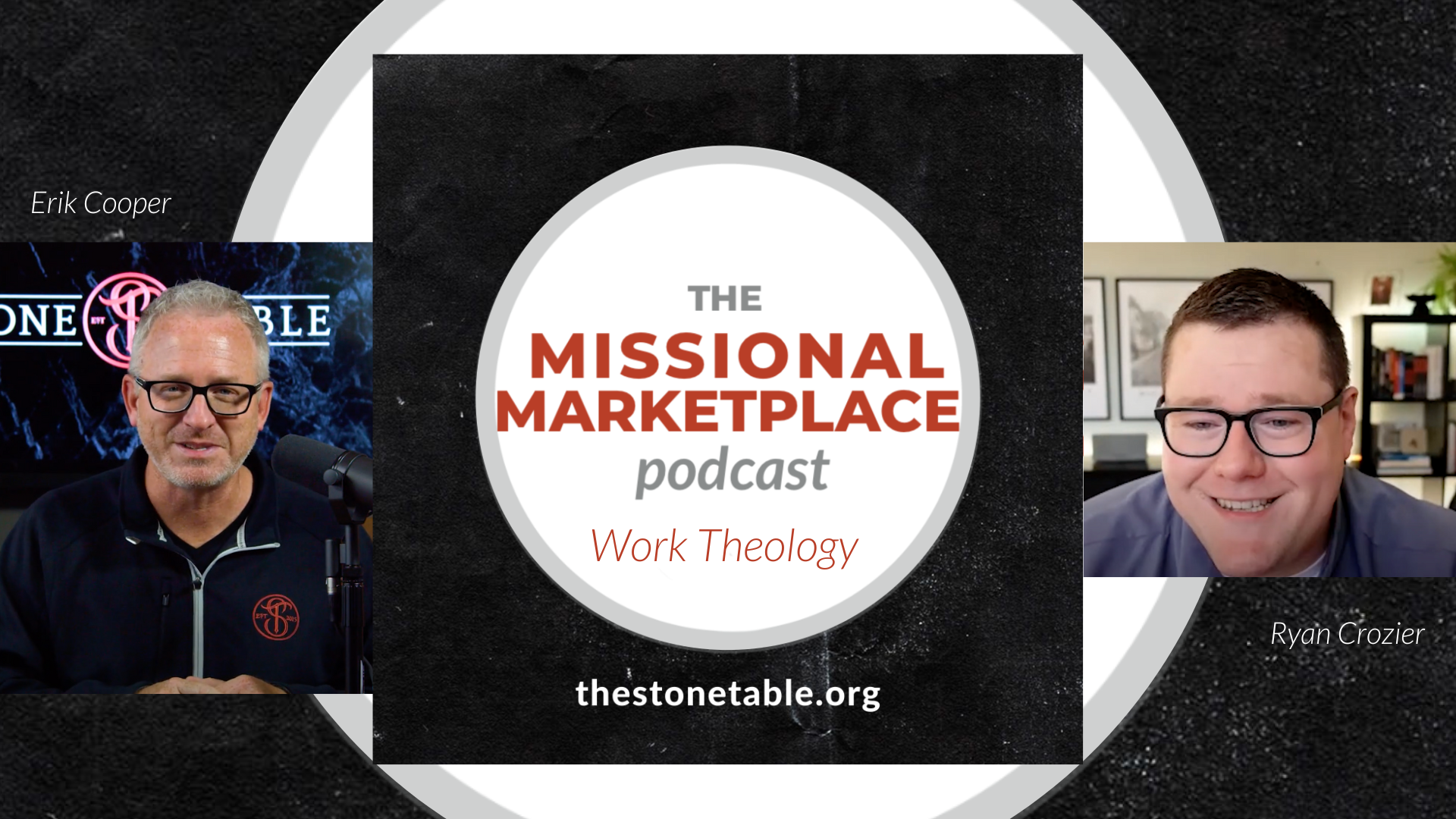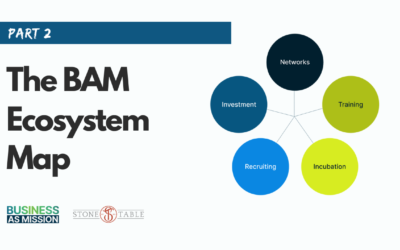Work Theology 101

In Episode Four of the Missional Marketplace Podcast, we learned the foundations of a good work theology. Erik & Darren unpack what a basic work theology looks like from a Christian perspective and give some insight on how we can live out our lives missionally with this new perspective.

In this episode, Erik gave us four points on work theology:
1. In the beginning, there was work.
In Genesis 2:15, God created man and put him in the garden “to work it and keep it”. This means that work has been a part of God’s plan and creation since the beginning of time! There was never a time in humankind’s existence that we did not work. We have been charged to work & keep God’s creation. As Erik said, “Working & keeping the Garden was part of human vocation – it’s what we were made for.”
2. When we work, we reflect God’s image.
Part of us reflecting God’s image is us working! God is a working God. As Erik reminds us, the Bible says in Genesis 2:2,
“And on the seventh day God finished his work that he had done, and he rested on the seventh day from all his work that he had done.” (ESV).
Hebrews chapter four looks back to this as well when speaking of entering God’s rest [from work, labor]. Again, God Himself is a working God. Therefore, when we work, we actually image God because God also worked.
3. Our daily work is an opportunity to partner with God.
God made us to work. We were made to work and be working throughout our life. At creation, God made us, and He made us to work. Isn’t that crazy? I feel like that one just stuck for me for the first time in watching this podcast.
God made us to work. Work is part of who we are – it’s part of our creation! As we mentioned earlier, when God created man (Hebrew: adam; mankind) He put us in the garden to “work it and keep it” (Genesis 2:15). This means that when God created us, He created us to be working. Fascinating! It’s part of our creation to work. Paraphrasing Erik, “God made a garden because we were meant to work in it”.
As Martin Luther once said, “God is milking the cows through the vocation of the milkmaid.” In the same way, God today is delivering the mail through the vocation of the postal worker; God is bringing justice through the vocation of the lawyer; and God is cleaning up the hallways through the vocation of the janitor.
4. Work is part of our heavenly future.
Revelation 14:13 and 22:3 both speak to work in the coming kingdom. We don’t stop working in the coming kingdom, as some “looney toons” theology may suggest! We aren’t simply winged babies playing harps in the clouds – we continue to work when we join the Lord in glory (Revelation 22:3).
While we still experience the sinful lens of work in today’s world, working through the thorns & thistles, we as followers of Jesus experience the first fruits of the coming kingdom, here & now, where work itself is fully redeemed.

Missional Moment
Finally, in our Missional Moment, we heard from Ryan Crozier, a missional entrepreneur in Romania. He shared with us a powerful story of a Christian baptism resulting from working with himself & his team, Christians who really lived out the fruit of the Spirit. The convert said that it was their living out the message of Jesus, their creation of a unique [work] atmosphere, that led her to Christ. And this came through business!
Ryan said, “it’s hard to make new friends… but business opens that door.” Erik backed that up by stating, “Good business fosters relationships.”
The Gospel of Jesus Christ is a relational gospel. This understanding, coupled with a missional perspective of work & business, can lead us to ask ourselves today… “What does it look like in my business, in my context, right where I am, to use my gifts & talents for the advancement of the Gospel?”
Having a good work theology gives us a missional perspective wherever we are, even in our daily jobs.


